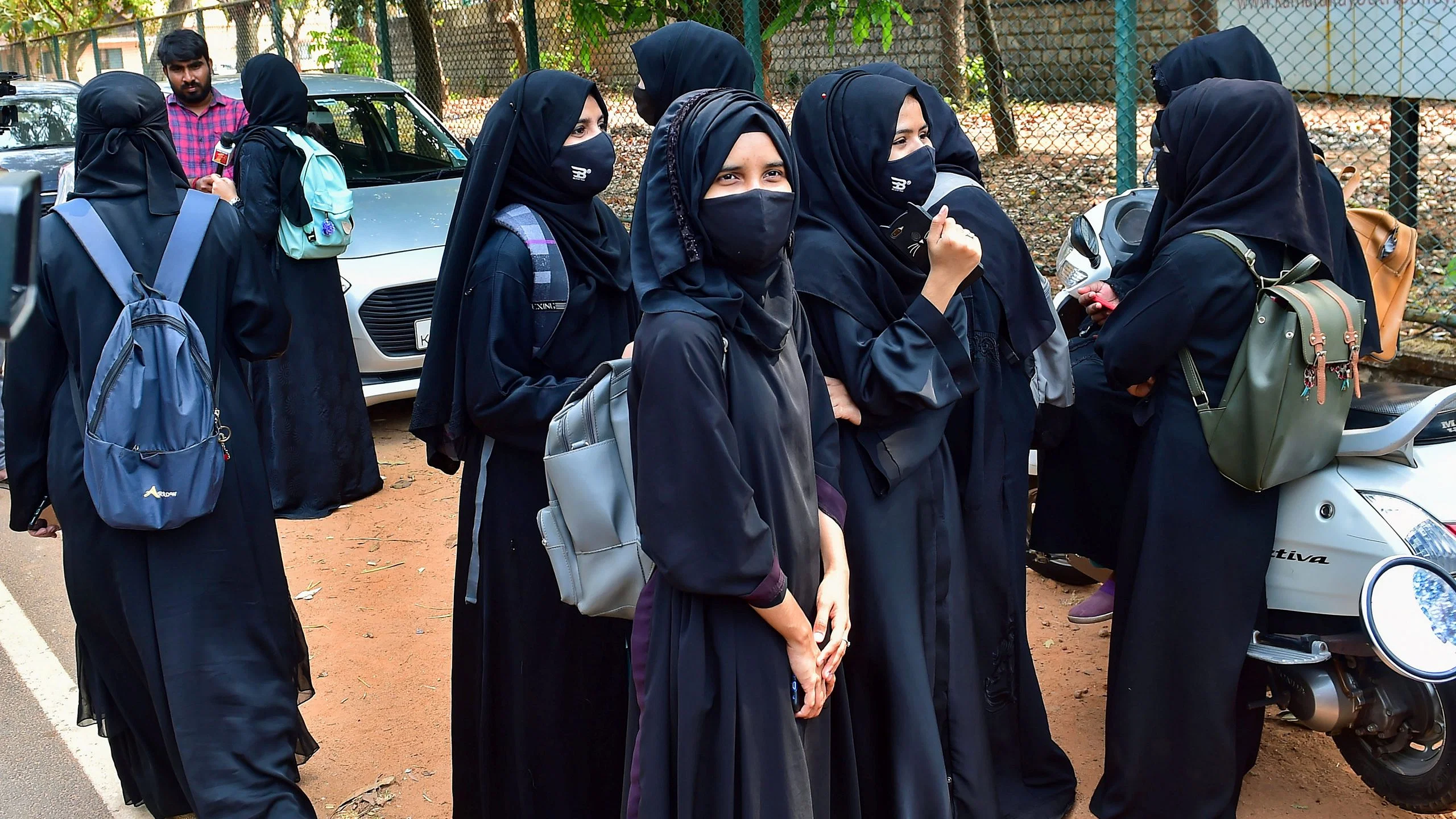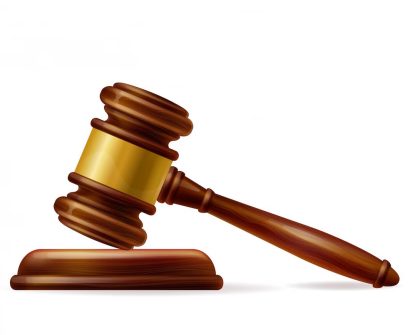
The hijab is an emblem in the worldwide fabric of cultural diversity that sparks intricate discussions regarding feminism, religion, identity, as well as freedom. It is clothing with enormous political, social, and cultural significance, rather than just a piece of cloth. The controversy over the hijab extends beyond conventional head coverings and includes nuanced intricacies of personal preference, societal standards, and religious interpretations.
Hijab Controversy
- At the core of the Indian hijab case is Muslim women’s constitutional right to cover their heads in colleges and institutions. When some places forbade the hijab due to dress codes and regulations, there were protests and court cases in multiple states.
- Discussions on religion have expanded the scope of societal discourse by bringing up issues like individual rights, secularism, and religious freedom.
hijab controversy: The Major Difference between “Burkha” and “Hijab”
- The hijab does not conceal the women’s faces, even if it covers their heads and necks. A headscarf is sometimes referred to as a hijab.
- The Karnataka hijab dispute was linked to this particular style of religious clothing, while the burka, which is the most hidden Islamic garment, covers the entire body.
- The mesh screen around the eyes allows women to see through the clothing.
Women’s Rights and Hijab
- Muslim women assert that their “freedom of conscience”, which they believe cannot be destroyed by the State is reflected in the headscarf they wear.
- While Article 25(2) permits the State to advance social welfare while restricting religion, Article 25(1) ensures equal rights to freedom of religion.
hijab row: Fact of the Case
- Six Muslim girls in Udipi, Karnataka, were removed from college, which sparked the conflict. A large number of people gathered inside and outside the facility and started a protest in favour of these women.
- In response, the college administration assumed that students had deliberately skipped classes because they were expected to wear hijabs and follow the proper dress code.
- Following this incident, additional female students at a different state institution started showing off their saffron scarves in class, which created a commotion among the student population.
hijab issue: Judgment on hijab banned
- In examining the “Quranic” injunctions, the Karnataka High Court concluded that the Quran does not explicitly compel the wearing of the hijab; rather, it suggests it as a recommendation rather than an absolute necessity.
- The court further emphasized that the fact that there are no clear sanctions for not donning the headscarf suggests that it is not considered a necessary religious practice.
- It appears from the court’s ruling that a religion should not be considered legitimate if it does not include mandated punishments. Even yet, a religion retains its religious status even in the absence of legal measures to compel adherents to practice it.
International Human Rights and Hijab
- The freedom of a Muslim woman to wear the hijab is classified as “freedom to manifest” since it deals with the outward expression of a religion (forum externum), not the inside ideas and beliefs of an individual (forum internum).
- Article 18(3) ICCPR provides protection for it as a result.
Public Opinion on Hijab: Effects in the Society
- Muslim women who wear the headscarf may encounter prejudice or discrimination in their community. Stereotyping can result from prejudice and unfavourable assumptions about the abilities, intelligence, or attitudes of any particular person. This discrimination can only impact social interactions and cause issues with employment opportunities, among other areas of life.
- The hijab has historically been portrayed as a symbol of female oppression and enslavement, with opponents arguing that women wear the veil because of social pressure or patriarchal norms. This point of view may give rise to negative opinions toward the hijab.
- In the specific contexts where wearing the hijab is customarily observed, Muslim women who opt not to do so may additionally face social pressure for transgressing fundamental religious or cultural standards. It’s possible that people who choose never to wear the hijab would feel left out.
The news on the hijab issue claims that wearing a headscarf is illegal and troublesome because of strong sexist and patriarchal beliefs that create a legal fiction that blatantly denies women their autonomy. These days, instead of going deeper, the court ought to deal with real and practical issues. All of this should be considered by the court, and women should be allowed to make their own decisions. Consequently, mutual understanding and honest communication can promote tolerance and inclusivity within groups.
HIJAB CONTROVERSY FAQs
- What is the case related to hijab controversy?
The government order (GO) dated February 5, 2022, which was maintained by the court in the hijab case before the Karnataka High Court, states that the school management would decide on the uniform in question if it is one of a private school.
- When did the hijab controversy start?
The problem started in February 2022 when a Udupi government pre-university college outlawed the hijab. Similar orders were put into effect by several colleges.
- What is the final decision of hijab case?
A two-judge Supreme Court bench rendered a divided decision in the Karnataka Hijab Ban case. Justice Hemant Gupta supported the ban on the hijab in line with the ruling of the Karnataka High Court.
- Why did the government ban hijab?
The restriction was maintained by the Karnataka High Court, which ruled that the hijab is not a necessary religious garment. Siddaramaiah highlights the Congress government’s dedication to the welfare of all societal segments while criticizing the BJP for engaging in vote-bank politics and promising that the former will not be repeated by the latter.
- Can Muslims refuse to wear hijab?
While some Muslim scholars as well as activists point out that it is not compulsory, Islamic religious authorities generally agree that covering one’s head is either desirable or required.
- What is the High court issue of hijab?
A three-judge panel of the Karnataka High Court maintained the prohibition on the hijab at the state’s educational institutions on March 15, 2022. The bench, which included Justices Krishna Dixit and J.M. Khazi in addition to Chief Justice Ritu Raj Awasthi, concluded that the hijab is not a mandatory religious practice for Muslim women.
- Is hijab essential religious practice?
Numerous appeals against the high court’s March 15 ruling, which held that donning a hijab is not an essential religious practice that qualifies for protection under Article 25 of the Constitution, have been submitted to the highest court.
- Is hijab compulsory as per Quran?
The Islamic holy book does not require Muslim women to cover their heads or wear headscarves. The grammatical structure of the verses supports the notion that everything is just a directory, as there is no prescription of a penalty or penance for not donning the hijab, the Court noted.
The most effective judiciary coaching in Jaipur is provided by Jyoti Judiciary Coaching. The objective is to create a comfortable learning environment for the students. It makes the difficult task seem easy, which increases the likelihood of achieving the desired outcome. The objective at Jyoti Judiciary is to give students the best possible education possible. The Institute pledges to use every resource at its disposal to provide you with the finest preparation for the Judicial Services entrance examinations.
- Which coaching is best for RJS preparation?
Renowned Jaipur coaching program “Jyoti Judiciary Coaching” aids students in getting ready for the RJS exam. The finest online and offline RJS coaching program in Jaipur, Jyoti Judiciary, enables a methodical approach to preparing for the RJS examination. Their curriculum has been carefully designed to cover all the subjects and courses necessary for passing the Rajasthan Judicial Services Exams.
With the goal of giving students the best coaching available for law entrance exams including the CLAT, AILET, and various other numerous state judiciary exams, Jyoti Judiciary Coaching, India’s Finest educational Platform, was established. Come enrol now with Jyoti Judiciary!
For any latest news, legal topics, judiciary exams notifications, patterns, etc watch Jyoti Judiciary’s YouTube channel for legal videos for any updates at https://youtube.com/@jyotijudiciarycoaching4852?si=2cwubh9d2A9urwJf









